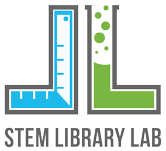I am no longer surprised when an elementary teacher tells me that their school has decided to use science block for community building.
Nor am I surprised when a high school teacher announces they want their students to finally do an experiment this quarter.
And I am especially unsurprised that so many of the K-12 teachers we work with express that they’re “just going to do something random” in class this week, because the new LSSS science standards are just plain confusing to read or internalize.
It was because revelations such as these have become so common that I that I traveled to Atlanta to attend a national, multi-day NSTA conference in 2017, Making Sense of 3D Teaching and Learning. I wanted to educate myself to ensure that teachers who walked through STEM Library Lab’s doors would find a place with expertise that could actually help them in finding, creating, and understanding classroom resources.
After conversations with teachers and administrators, we realized that understanding the LSSS science standards, both in terms of pedagogy and practice, essentially feel like a black hole for many educators. The LSSS just isn’t intuitive; however, it is imperative for schools to help prepare their teachers in tackling inquiry-based science. So in 2019, I began deep diving into credentialed Professional Development from organizations like the NSTA, Bureau of Education and Research, CA Academy of Sciences, and others.
The resulting fruit of these labors is Engaging Students in LSSS-Aligned Instruction, a multi-session workshop series that walks teachers through lesson planning, instructional practices, and assessment. I am exceptionally proud of this service, and I believe it fills a need that simply hasn’t had a solution for many years. It can help teachers engage their students more deeply in rigorous learning experiences, while simultaneously helping them feel more capable and fulfilled in their teaching practice.
To take a page from my Entrepreneurship class in grad school:
The Problem: Schools have funds for Professional Development, but in Louisiana, the bulk of that funding is tied up for opportunities that are Tier 1. This means they are aligned to a particular prescriptive of curriculums that schools can purchase with state funding, and only the makers of those curriculums can offer the PD. However, our workshop series is deliberately not aligned to a particular curriculum, because it hinges on the notion that universal best practices are not necessarily dependent on any particular workbook or exercise. And so, while it aims to “teach teachers to fish,” to use a turn of phrase, it is not available on the state approved list because it doesn’t directly tout any particular curriculum or product.
The Opportunity: As new CARES Act funding gets approved, we are looking for schools ready to teach their teachers to fish. CARES Act funds can be spent on a wider array of PD opportunities, and our workshops are tailored to address virtual, hybrid, and classroom centered inquiry-based learning. They are also offered online or in person according to the needs of schools.
The Ask: You may not have realized, but it was no accident that you did not receive any donation requests from STEM Library Lab in June for GiveNOLA day, or in November for Giving Tuesday, or in December for an Annual Appeal. Although we are a nonprofit and don’t shirk donations, we believe that there are other organizations better suited for individual giving. Instead, we are asking for your help in connecting us to a K-12 school which has identified bolstering support for science instruction as a need in 2021.
We are thrilled to offer this PD. We stand behind and guarantee it, and we are looking for schools to take their science teaching practice to the next level with STEM Library Lab. It’s like I always say: “If you give a teacher a prewritten curriculum, they’ll teach for a day; if you teach teachers how to design and deliver rigorous inquiry-based instruction, they’ll thrive and systemically uplift public education for a lifetime.”
All we need is your help in spreading the word.

